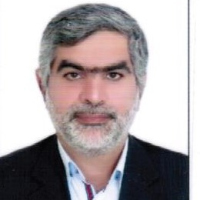Conceptual Framework of Accountability in Social Systems Based on the Holy Quran; Developing an Islamic Perspective: Validation in Universities
This study aims to develop a conceptual framework of accountability based on the Holy Quran and has been done through a multi-study combined design.
In the first phase of the research, the initial conceptual framework was obtained through the method of cyclical analysis process, which allows the analysis of scattered and multidimensional qualitative data and includes four stages of data and information collection, data reduction, data organization and interpretation.
The result of this study is the collection and enumeration of 306 comprehensive concepts and then the classification and conceptualization of these codes and concepts, under 92 central codes based on content similarity and finally the formation of the final classification of principles, barriers and underlying factors. With 21 items of accountability in three areas of cognitive (perceptual-mental), emotional (insight-attitudinal) and behavioral (practical) as a conceptual framework of accountability in social systems based on the Holy Quran.
This study drew a new conceptual framework as a beacon for the advancement of various organizations and social systems, which according to the rational reasons and evidence related to the need to develop indigenous Islamic humanities and the experience gained from this study. And the resulting framework and its structural and functional capabilities can be used to respond to social systems in a wide range of organizations, especially universities.
-
A Three-Dimensional Conceptual Model of Accountability in Social Systems Based on the Qur'an and Hadiths
*
Journal of Quran and social science, -
The Impact of ‘Allāmah Ṭabāṭabā’ī's Theory of Subjective Considerations (I’tibāriyāt) on the Issue of the Unity of Desire and Will in the Science of Principles of Jurisprudence
Zahra Aatashi*, Mohammadjavad Salmanpour, Maryam Barooti
Ain - e - Hikmat, -
Contextualization of Quranic Teachings as a Framework for the Development of the Coherence of Social Systems
Jafar Torkzadeh *, Tooraj Derakhshanfar, Rahmatollah Marzooghi, Mohammadjavad Salmanpur, Jafar Jahani
Journal of Islam and Social Sciences,




